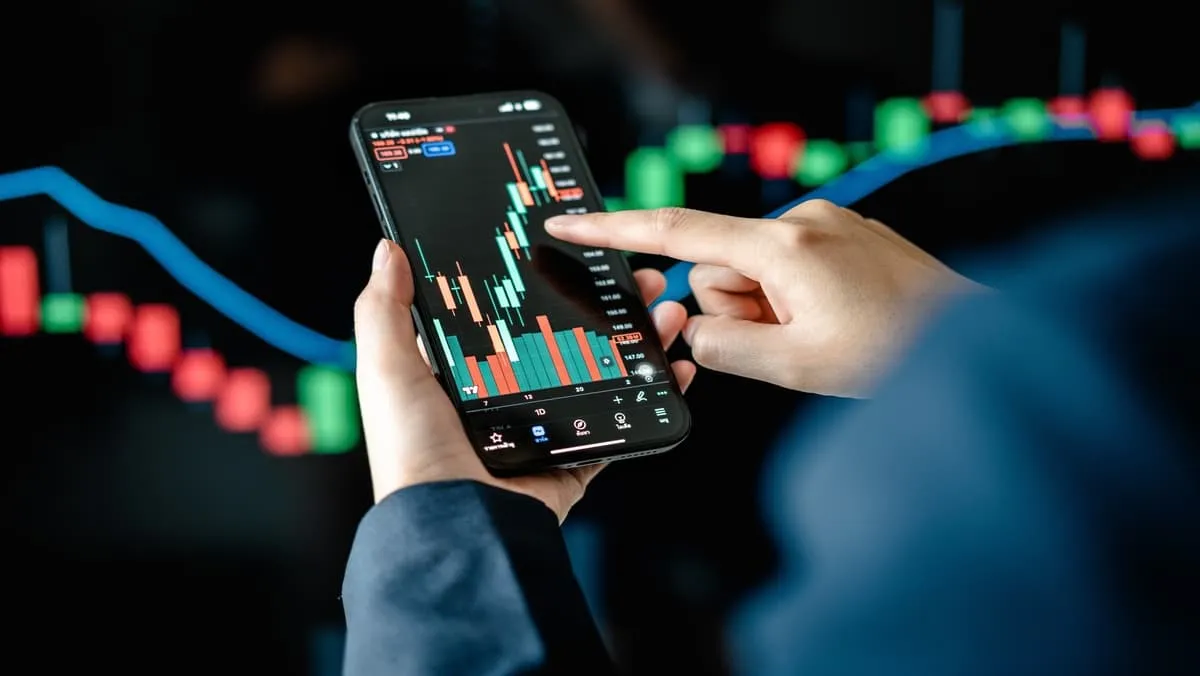
- Investment ideas
- Trading basics
What is contracts for difference trading?
Do you want to know how to make money from this?
Register for free and get expert advice, access to a training course and webinars.
Interest in trading CFDs (contracts for difference) has been growing. In January 2021, the term “CFD trading” reached 100 out of 100 in Google Trends. Traders saw potential in making profits through CFDs. However, the associated risk should not be underestimated. So, what is CFD trading, how does it work, and why is it not suitable for everyone?
What is CFD trading?
CFD trading allows traders to speculate on price movements of a wide range of underlying assets, such as stocks, indices, commodities, cryptocurrencies, and currency pairs, without owning the assets directly. The essence of CFD is that the trader enters into an agreement with a broker to receive or pay the difference between the opening and closing prices of a contract.
You can open long or short positions with CFDs
CFD trading is a form of speculation based on predicting future price changes of the underlying asset. A trader can take either a long or short position. By opening a long position, the trader expects the asset price to rise and seeks to profit from this increase. Conversely, by opening a short position, the trader bets on a decrease in the asset’s price.
The profitability or loss of a CFD trade directly depends on the accuracy of the trader’s forecast regarding price movement direction. It is essential to understand that both long and short positions can lead to financial losses. Therefore, it is advisable to thoroughly study how CFDs work and develop an effective risk management strategy before starting CFD trading.
Why do people trade CFDs?
CFD trading offers several advantages related to its flexibility and potential profitability:
- Leverage allows traders to open positions significantly larger than their initial deposit. This means a relatively small amount of personal funds is required to control a large volume of an asset. However, it’s important to remember that leverage amplifies both potential profits and risks of losses.
- Flexibility in CFD trading allows traders to open both long and short positions. Traders can profit from both rising and falling asset prices, offering ample opportunities to diversify a portfolio and adapt to various market conditions.
- Tax advantages when trading CFDs can vary depending on jurisdiction and specific circumstances. In some cases, derivative instruments can provide certain tax benefits. However, it is recommended to consult a qualified tax advisor for accurate information about the tax implications of CFD trading.
- Extended trading hours allow traders to conduct transactions outside standard trading sessions. This is particularly useful for those who can’t trade during the day. However, it should be noted that asset prices may differ significantly during periods of low liquidity.
- Hedging is a risk management strategy that involves opening a position to offset potential losses from another position. CFD trading provides an effective way to hedge risks associated with investments in other assets.
Countries where CFD trading is allowed
CFDs are permitted in many countries, including the UK, Australia, Germany, Switzerland, Singapore, Spain, France, South Africa, Canada, New Zealand, Sweden, Norway, Italy, Thailand, Belgium, Denmark, and the Netherlands, as well as the Hong Kong Special Administrative Region.
The U.S. Securities and Exchange Commission (SEC) has restricted CFD trading in the United States, but non-residents can trade with CFDs.
Costs associated with CFD trading
CFDs come with certain costs that need to be considered when planning a trading strategy. The main types of expenses in CFD trading include commissions, financing costs, and spreads.
- Spreads represent the difference between the buying and selling price of a financial instrument. The spread is a source of income for the broker and is one of the key factors affecting the total cost of a trade.
- Commissions are fees charged by brokers for providing brokerage services. The commission size can vary depending on the type of trading instrument, the size of the trade, and the conditions offered by a specific broker. Typically, commissions aren’t charged when trading currency pairs and commodities, but it is common when trading stocks. For example, the brokerage firm CMC Markets charges a commission for trading stocks listed on U.S. and Canadian exchanges, starting at 0.10% or $0.02 per share. The commission is charged both when opening and closing a position.
Features of using leverage
CFD trading gives traders the unique ability to use leverage, which can be significantly higher than what is available in traditional stock or other instrument trading. This means that a trader can control a much larger volume of an asset using a relatively small amount of personal funds.
Leverage ratios are regulated by authorities and can vary depending on the type of asset, the trader’s account size, and other factors. In the past, leverage in the CFD market was much higher, but it is now limited to certain levels. For example, in some jurisdictions, the maximum leverage is 30:1, meaning that for every dollar of personal funds, a trader can control assets worth up to $30. However, some brokers offer more flexible conditions, allowing traders to use leverage up to 2000:1.
Using leverage enables traders to increase potential profits, but it also increases risks. If the asset’s price moves unfavorably, the trader’s losses can far exceed the size of their initial deposit.
Margin requirement
Trading with leverage requires that the trader maintain a certain amount of funds in their account, known as margin. Margin serves as collateral that ensures the ability to open and maintain a trading position. Essentially, it’s the minimum deposit needed to start trading with leverage.
Margin acts as a buffer that helps protect the broker from potential losses in case of adverse market events. If the market value of an open position starts to decrease and the trader’s account balance falls below the required margin, the broker initiates a margin call. A margin call is a notification to the trader to add more funds to the account to maintain the open position.
If the trader fails to add the necessary margin amount within a specified time, the broker may forcibly close the position.
Spread in CFD trading
A spread in CFD trading represents the difference between the buying (Ask) price and the selling (Bid) price of a financial instrument. Essentially, this is the fee that the broker charges the trader for executing the order. The spread is an integral part of the pricing mechanism in the CFD market and serves as the broker’s main source of income.
Spreads can be either fixed or variable. Fixed spreads remain constant and don’t depend on current market conditions. Variable spreads can change depending on market volatility, asset liquidity, and other factors, such as the time of day or trading volume.
The spread size significantly impacts a trader’s profitability. The narrower the spread, the lower the trading costs and the higher the potential profit. Wider spreads, on the other hand, increase trading costs and reduce the efficiency of a trading strategy.
When opening a position, the trader must consider the spread size. To make a profit, the asset’s price must move by an amount that exceeds the spread size. In other words, the trader must cover the spread costs before starting to make a net profit.
Understanding the spread mechanism is one of the key factors for successful CFD trading. Traders are advised to carefully analyze the terms offered by brokers and choose those who offer the most competitive and transparent spreads. Additionally, traders should consider the impact of spreads when evaluating the effectiveness of their trading strategies and choosing financial instruments for trading.
Why risk management is important in CFD trading
CFD trading is associated with significant factors that are crucial for risk management: the use of leverage and the high volatility of financial markets.
Leverage allows traders to control much larger volumes of assets than they could afford with their own funds. However, this feature is a double-edged sword. On the one hand, leverage significantly increases potential profits from successful trades. On the other hand, it proportionally increases potential losses. Even a small adverse price movement of the underlying asset can lead to significant financial losses for the trader, exceeding their initial investment.
Market volatility is another important condition for CFD traders. Sharp and unpredictable price fluctuations in financial instruments can result in rapid and significant changes in the value of open positions. In a highly volatile environment, traders face an increased likelihood of both substantial profits and losses in the short term.
Traders may also encounter issues related to potential delays in executing trade orders. In a highly volatile market, even minor delays can result in significant losses.
Why CFD trading may not be suitable for everyone
The spread directly affects the profitability of trading operations. It reduces the potential profit from successful trades and increases the losses from unsuccessful ones. As a result, traders who trade CFDs face higher trading costs compared to those who trade underlying assets in traditional markets.
It should be noted that although traditional markets also involve certain costs, such as broker commissions, exchange fees, and taxes, they are generally fixed or have a transparent structure. The spread, however, is a more flexible tool that can change depending on market conditions and the type of financial instrument.
The CFD trading industry is characterized by relatively low levels of government regulation compared to traditional financial markets. This means that choosing a CFD broker largely depends on the company’s reputation, its longevity in the market, and its financial stability. The lack of strict regulatory requirements increases the importance of independently analyzing and evaluating the broker’s reliability before starting to work with them. Although many reputable CFD brokers exist, it’s important to remember that the risk of losing funds is always present.
Do you want to know
How to make money from the news
Register for free and get:
- Expert consultation;
- Access to the training course;
- Opportunity to participate in webinars


